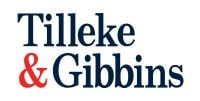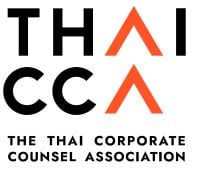

Assistant general counsel APAC | McKinsey & Company







Apichaya Krairiksh
Assistant general counsel APAC | McKinsey & Company
What are the most significant cases and transactions that you have recently been involved in?
McKinsey’s Asia legal team operates as a cohesive unit, devoted to serving the entire Asia Pacific region. As legal counsel in this team, our primary focus lies in advising on legal, professional, and reputational risks stemming from client work and other activities, acting as both enabler and gatekeeper. While client-specific details remain strictly confidential, it is a team effort to actively engage in a wide array of critical matters that exemplify our expertise and dedication, in Thailand and other APAC jurisdictions.
Our APAC legal team, led by Rita Kriz (deputy general counsel, head of legal for Asia X/GCR), Brijesh Balakrishnan, Yoshimi Tomizawa and Lilian Chen have been involved in advising and negotiating complex digital, advanced analytics, and emerging technology engagements, as well as alternate commercial and fee structures across various industry practices and sectors within the Asia Pacific region. Despite managing an increasing volume of cross-jurisdictional matters, our team actively participates in driving several regional and global initiatives as well. With this context, notable examples that I have been involved in includes advising on a digital transformation engagement involving cutting edge technology to minimise costs while developing the client’s organisation digital transformation.
Additionally, I navigated the team through RFP processes under local procurement regulations, providing legal, operational guardrails and risk mitigation metrics to the client service team. Acted as thought partner for the client service team throughout, from scoping the RFP submission to drafting agreements and thinking through ancillary risk topics. As a result, we managed to support the client with its digital transformation goals while remaining within our service line boundaries.
We advised on an engagement relating to complex program management and quality assurance for management information system towards single source of truth implementation. The multi-month negotiation process involved having a translation line with the client, providing clarification on complex revenue arrangements, clarification of intellectual property issues and scoping sub-contract work.
Streamlining client contracting process in the region has also been of topmost priority, by ensuring compliance with procurement processes, evolving laws and regulations, central bank regulations, data privacy requirements and ensuring McKinsey is provided with adequate protection against legal risks. It’s our goal to proactively collaborate and establish a good rapport with the client’s organisation during legal negotiations, and due to this we have managed to get all our main risk points solved over client calls and in-person meetings. Lastly, we are advising on a complex global framework agreement intended to cover multiple pre-agreed service line topics and create efficiency in the contracting process.
Could you share an example of a time when you came up with an innovation that improved how your legal team works and did not come at a large expense?
To streamline and increase the efficiency of handover process during a counsel’s personal time off (“PTO”), we drafted a PTO coverage policy where we leveraged McKinsey’s existing central repository to store active agreements that needed coverage while the handling counsel is on PTO.
The innovation is intended to ensure a smooth handover process where the handling counsel is required to complete a handover sheet specifying the details of the engagement / status / unresolved issues / hyperlink to all relevant documents which will link to the central repository.
With the summary of engagement details in one place and quick access to relevant documents and emails, this will enable the covering counsel to address a request quickly with a complete understanding of the engagement background. This will ensure that our stakeholders are provided with timely service without repeating the engagement details to the covering counsel. This policy was presented to the McKinsey Asia legal team and did not come with any additional costs to McKinsey.
How do you see the general counsel role evolving in Thailand over the next five-ten years?
In the past, GCs have played an important role in ensuring compliance with relevant regulations and protecting the organisation from legal risks and preventing unfavorable outcomes. It is increasingly important now, given the risks which are evolving due to the disruption of AI, geopolitical considerations, sanctions and export control issues, data localisation requirements and more.
As most organisations invest in technology to minimise operational costs, this means GCs need to be able to work together with generative AI tools serving as a co-pilot, instead of junior lawyers conducting legal research, due diligence or initiating the first draft of a contract. They will need to improve their prompt engineering and be thoughtful about how they verify and use AI outputs responsibly. Their daily work will shift from traditional computing skills to leveraging AI in their operating system. Work will of course be more efficient with more contracts being automated, using tech enabled project management for tracking tasks and monitoring team performance, but this also means that the next generation GCs needs to be fast learners, be open-minded about new technologies and new use-cases.
I also view the role of GCs in Thailand as not only being a pragmatic business partner within the organisation, but also building their own brand in public forums, building connectivity with law firms and other GCs in the region which will promote knowledge sharing and personal connection. It is important to have knowledge allies to discuss the challenges and uncertainties of the ever-changing legal and technological landscape.
Which recent political, economic or regulatory changes have impacted your work the most in recent years?
The EU Artificial Intelligence Act and China’s Interim Measures for Administration of Generative AI Services have had the most impact on McKinsey’s work in in the last year. There are numerous nuances to generative AI engagements that impact McKinsey’s risk exposure. We have had to carefully scope our generative AI engagements with our stakeholders and explain the risks involved in the delivery of our services. In particular, the risks would evolve around issues involving the procurement of licenses, the classification and sensitivity of data used as input data, the output and use cases taking into consideration the responsible AI standard and prohibited and high-risk AI use cases and intellectual property rights. It is most critical to ensure that all risk mitigations are in place and that use cases, clients and third-party dependencies are clearly communicated.